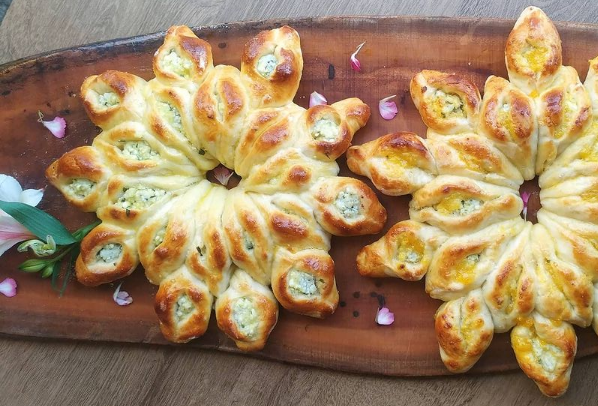São Paulo – Arab dishes may be its heart and soul, but Simple Comida Fresca draws on many other sources. The takeaway restaurant was created during the pandemic and operates in Poços de Caldas in the state of Minas Gerais, Brazil and is run by a Lebanese descendant. A year and half ago Geraldo Pereira Jr. decided to focus on one of his passions, the cuisine.
With a degree in Dentistry, Pereira Jr. had already been working as a chef before. “I’m a dentist, and I have worked with food for over 15 years, doing events. But in a more businesslike fashion I started only last year. The pandemic came, and I thought, ‘Now is the time.’ And I quit Dentistry after 30 years,” he told ANBA.
Freshly made
Using his Instagram page to promote the dishes, Pereira Jr. explains that the food stands out for its freshness. “We’ve been well received as it’s not that mass-produced, mechanical food. We make every dish separately. I believe that’s where our success lies. The freshness. The food is made on the day, we don’t reheat it. That’s one of our pillars,” the chef stressed.

The deliveries are made from Wednesday through Sunday, and orders have to be made 24 hours in advance. The menu features 30 options of savory dishes, including salads, pastries, and main courses. As for the five desserts are prepared by the chef’s wife, Neia Pereira. She also handles the brand’s social media, photos, and online service.
Having lived in the state Minas Gerais for nine years, the couple will soon open the doors of a physical venue for Simple Comida Fresca. “The venue should be ready next month. The Arab food is obviously very successful, but I’d also like to follow different paths,” the chef pointed out.
Arab roots
Although he hasn’t inherited the Lebanese last name Namen, Pereira Jr. got from his mother the contact with the traditional cuisine. “My maternal grandparents were Lebanese and came to Brazil between the 1910’s and 1920’s. They got established in Cravinhos, São Paulo, which was a coffee-growing region back then. But they didn’t know much about farm work, so my grandfather became a travelling salesman,” the chef said.

The parents of the chef later moved to another city in the state of São Paulo, where they had four children. “She was always busy working as a teacher, giving classes in farms. But she was an amazing cook. She only cooked on the weekends, but my memories of her and Lebanese food are very distinctive,” he said.
The grandson of Lebanese grandparents reminisces a huge table for eight. At the center, a disc that made the food arrive at you so that nobody had to get up to serve themselves. “It was a party, even short on time, because of her work. My mother was that quiet Lebanese woman that spoke low, but her authority was impressive. But she wouldn’t let me get into the kitchen. She thought I would burn myself,” Pereira Jr. said.
Although he hasn’t learned it from his mother, the affective memory of the cuisine remained with him. “I’ve always liked to cook, so I tended towards the Lebanese food. Only when I got married and moved in with my wife, I got to cook. That smell of cinnamon, cardamom, and Syrian spices stays with you,” the Arab descendant reminisced. He now waits the end of the coronavirus pandemic to be able to step foot on his family’s country of origin. “I want to visit Lebanon next year. I even sought a tourism agency yesterday so that I could go,” he finished.
Translated by Guilherme Miranda




